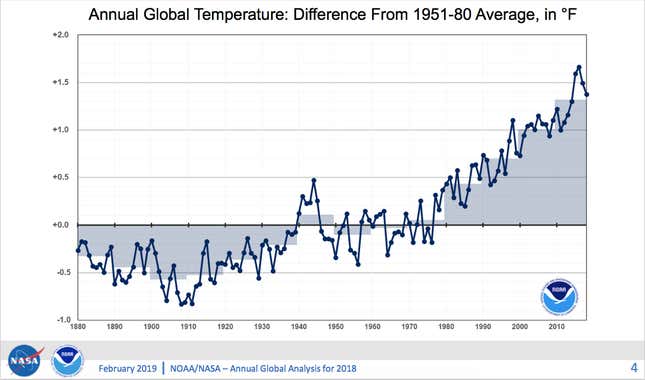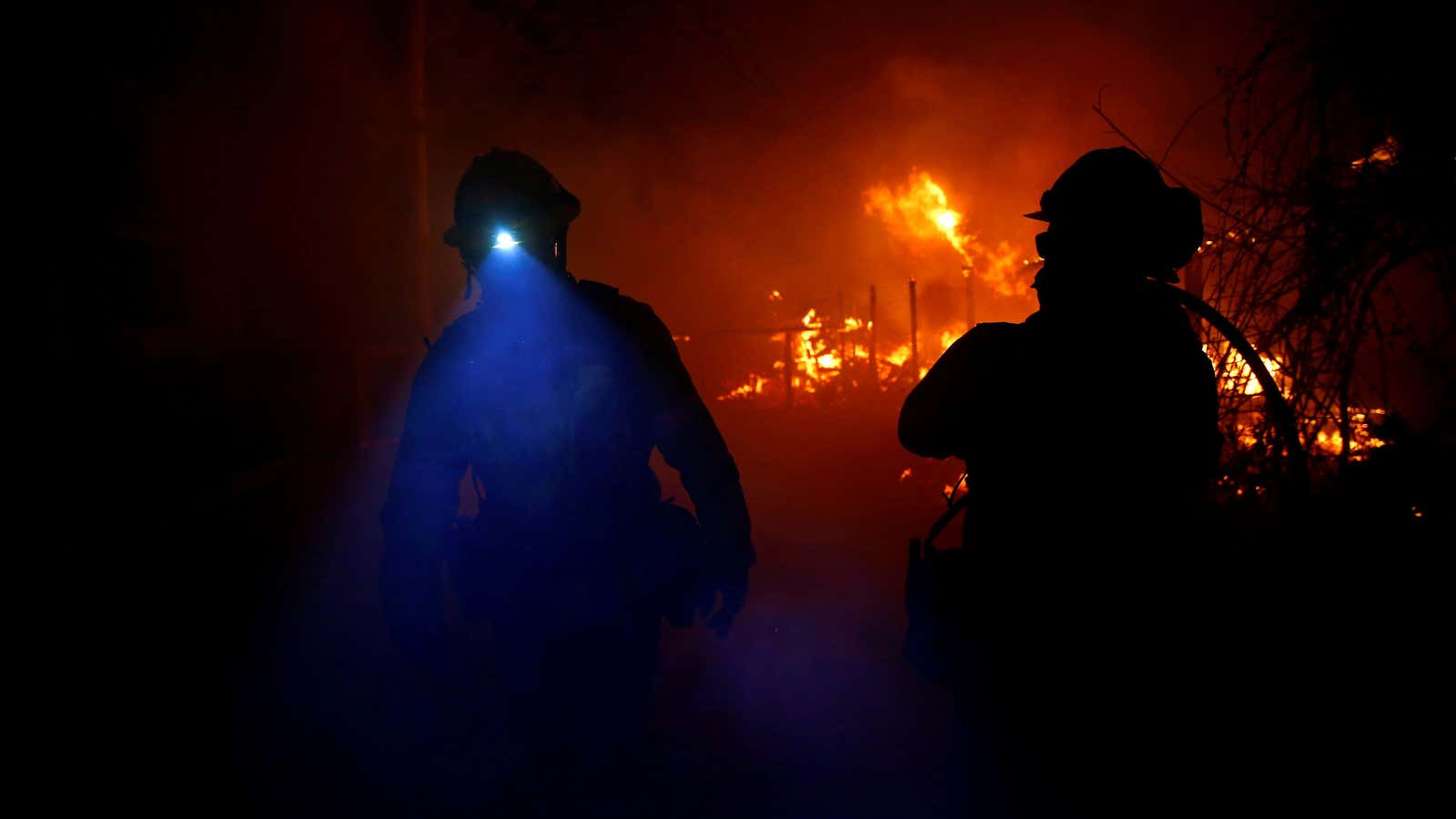Last year was the fourth warmest on Earth on record, according to two separately conducted assessments from NASA and the US National Oceanic and Atmospheric Administration (NOAA). And 2018 was a full 1.49°F (0.83°C) warmer than the 1950 to 1981 global average.
When scientists say 2018 was the fourth-warmest year “on record,” they are talking about the record that began in 1880. That’s because earlier available climate data do not cover enough of the planet to get an accurate reading, according to NASA.
So 2018, the fourth-warmest year in 139 years of record-keeping, “probably was warmer than many hundreds of years before that,” Gavin Schmidt, director of NASA’s Goddard Institute for Space Studies, said on a call with reporters announcing the finding today (Feb 6). The year 2016 still holds the title as the hottest year on record, influenced by the El Niño phenomenon affecting the Pacific Ocean that year, followed by 2015 and 2017 in second and third place.
But warming across the globe isn’t even; the rate of warming in the Arctic, for example, is “between two and three times” faster than the global average, Schmidt said.
Globally, all of the five warmest years on record have occurred in the last five years. All of the 18 hottest years on record have occurred within the last 19 years. The trend is excruciatingly clear: climate change is here, warming the planet more as time goes on.
“There’s an underlying trend, obviously, that you can see in the data,” Schmidt said.

In a chart plotting global average temperatures over time, some years are lower than others, but the overall direction of the line is unmistakably upwards. It’s like “riding up an escalator over time, and jumping up and down while you’re on that escalator,” Deke Arndt, the head of the global environmental monitoring branch of NOAA, said Wednesday. The short-term up-and-downs are “internal variability in the climate system,” he said, caused by a complex array of variables like El Niña and La Niña years. But overall, average temperatures keep climbing higher.
Meanwhile, 2019 is starting out with “slight El Niño conditions,” Schmidt said, so it’s possible 2019 will be slightly warmer than 2018. But “that’s more a rule of thumb than a prediction,” Schmidt said.
